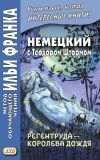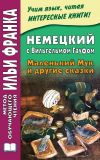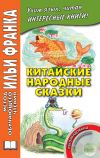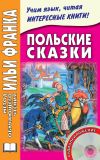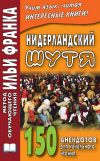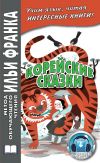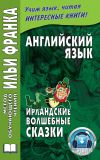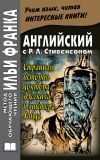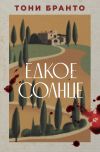Текст книги "Английский с Шерлоком Холмсом. Человек с рассеченной губой / Arthur Conan Doyle. Sherlock Holmes"
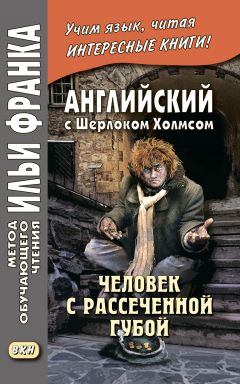
Автор книги: Артур Дойл
Жанр: Иностранные языки, Наука и Образование
Возрастные ограничения: +16
сообщить о неприемлемом содержимом
Текущая страница: 20 (всего у книги 21 страниц)
I had just finished my tea when he returned (я только закончил пить чай, когда Холмс вернулся), evidently in excellent spirits (очевидно, в прекрасном расположении духа), swinging an old elastic-sided boot in his hand (размахивая каким-то старым ботинком; elastic-side boots – штиблеты с резинкой). He chucked it down into a corner and helped himself to a cup of tea (он отшвырнул его в угол и налил себе чашку чая).
“I only looked in as I passed (я только заглянул на минутку, проходя мимо),” said he. “I am going right on (сейчас же отправлюсь дальше).”
“Where to (куда)?”
hour [aʋǝ], excellent ['eks(ǝ)lǝnt], corner ['kɔ:nǝ]
“I think that this should do,” said he, glancing into the glass above the fireplace. “I only wish that you could come with me, Watson, but I fear that it won't do. I may be on the trail in this matter, or I may be following a will-o'-the-wisp, but I shall soon know which it is. I hope that I may be back in a few hours.” He cut a slice of beef from the joint upon the sideboard, sandwiched it between two rounds of bread, and thrusting this rude meal into his pocket he started off upon his expedition.
I had just finished my tea when he returned, evidently in excellent spirits, swinging an old elastic‑sided boot in his hand. He chucked it down into a corner and helped himself to a cup of tea.
“I only looked in as I passed,” said he. “I am going right on.”
“Where to?”
“Oh, to the other side of the West End (на другой конец Уэст-Энда; West End – Уэст-Энд /западная, аристократическая часть Лондона/). It may be some time before I get back (может пройти много времени, прежде чем я вернусь). Don't wait up for me in case I should be late (не ждите меня, если опоздаю).”
“How are you getting on (как ваши успехи)?”
“Oh, so so (так себе). Nothing to complain of (не могу жаловаться). I have been out to Streatham since I saw you last (я был в Стритеме, /с тех пор как видел вас в последний раз/), but I did not call at the house (но не заходил в дом). It is a very sweet little problem (преинтересное дельце: «милая задачка»), and I would not have missed it for a good deal (я бы ни за что его не упустил = ни на что бы не променял). However, I must not sit gossiping here (однако я не должен сидеть тут и болтать), but must get these disreputable clothes off (мне надо сбросить это позорное тряпье; disreputable – недостойный уважения; дискредитирующий, компрометирующий, бесчестящий; позорный, постыдный) and return to my highly respectable self (и вернуться к глубоко уважаемому, приличному себе = стать снова приличным человеком).”
I could see by his manner that he had stronger reasons for satisfaction (по поведению Холмса я понял, что у него есть более веские основания для радости; satisfaction – удовлетворение) than his words alone would imply (чем одни лишь его слова могли выразить). His eyes twinkled (глаза его блестели), and there was even a touch of color upon his sallow cheeks (а на бледных щеках даже появился слабый румянец; touch – прикосновение; чуточка; примесь; оттенок; sallow – желтоватый, болезненный, землистый /о цвете лица/). He hastened upstairs (он поспешил наверх), and a few minutes later I heard the slam of the hall door (и через несколько минут я услышал, как хлопнула входная дверь), which told me that he was off once more upon his congenial hunt (что говорило о том, что Холмс снова отправился на свою «охоту»; congenial – сходный, близкий по духу; /благо/приятный; to hunt – охотиться).
disreputable [dɪs'repjʋtǝbl], respectable [rɪ'spektǝbl], congenial [kǝn'ʤi:nɪǝl]
“Oh, to the other side of the West End. It may be some time before I get back. Don't wait up for me in case I should be late.”
“How are you getting on?”
“Oh, so so. Nothing to complain of. I have been out to Streatham since I saw you last, but I did not call at the house. It is a very sweet little problem, and I would not have missed it for a good deal. However, I must not sit gossiping here, but must get these disreputable clothes off and return to my highly respectable self.”
I could see by his manner that he had stronger reasons for satisfaction than his words alone would imply. His eyes twinkled, and there was even a touch of color upon his sallow cheeks. He hastened upstairs, and a few minutes later I heard the slam of the hall door, which told me that he was off once more upon his congenial hunt.
I waited until midnight (я ждал до полуночи), but there was no sign of his return (но его все не было: «не было ни признака его возвращения»), so I retired to my room (поэтому я отправился спать). It was no uncommon thing for him to be away for days and nights on end (это не было необычной вещью для него – уходить на долгие дни и ночи; on end – непрерывно, подряд) when he was hot upon a scent (когда он шел по горячему следу), so that his lateness caused me no surprise (так что его опоздание ничуть меня не удивило). I do not know at what hour he came in (не знаю, в котором часу он пришел), but when I came down to breakfast in the morning (но когда я утром спустился к завтраку) there he was with a cup of coffee in one hand (он сидел /за столом/ с чашкой кофе в одной руке) and the paper in the other (и с газетой в другой), as fresh and trim as possible (очень бодрый и подтянутый: «такой бодрый и подтянутый, как только возможно»; trim – аккуратный, опрятный; элегантный; подтянутый).
“You will excuse my beginning without you, Watson (извините, что начал без вас, Ватсон),” said he, “but you remember that our client has rather an early appointment this morning (но вспомните, что нашему клиенту назначена встреча на это утро, и довольно рано).”
“Why, it is after nine now (да, уже десятый час: «после девяти»),” I answered. “I should not be surprised if that were he (не удивлюсь, если это он). I thought I heard a ring (кажется, я слышал звонок).”
lateness ['leɪtnɪs], appointment [ǝ'pɔɪntmǝnt], surprised [sǝ'praɪzd]
I waited until midnight, but there was no sign of his return, so I retired to my room. It was no uncommon thing for him to be away for days and nights on end when he was hot upon a scent, so that his lateness caused me no surprise. I do not know at what hour he came in, but when I came down to breakfast in the morning there he was with a cup of coffee in one hand and the paper in the other, as fresh and trim as possible.
“You will excuse my beginning without you, Watson,” said he, “but you remember that our client has rather an early appointment this morning.”
“Why, it is after nine now,” I answered. “I should not be surprised if that were he. I thought I heard a ring.”
It was, indeed, our friend the financier (это и в самом деле был наш друг финансист). I was shocked by the change which had come over him (меня поразила перемена, произошедшая в нем), for his face which was naturally of a broad and massive mould (его лицо, обычно широкое и крупное; mould – форма; лекало, шаблон), was now pinched and fallen in (теперь осунулось, /щеки/ ввалились; pinched – застроченный; худой, истощенный, измученный: pinched features – исхудалое лицо, лицо с заостренными чертами), while his hair seemed to me at least a shade whiter (а волосы, казалось, побелели еще немного больше; shade – тень; тон, оттенок). He entered with a weariness and lethargy (он вошел усталой и вялой /походкой/; weariness – усталость, истощение) which was even more painful than his violence of the morning before (что было еще более тягостным /зрелищем/, чем его /отчаянное/ неистовство вчерашним утром), and he dropped heavily into the armchair (и он тяжело опустился в кресло) which I pushed forward for him (которое я придвинул ему).
“I do not know what I have done to be so severely tried (не знаю, что я сделал, чтобы /заслужить/ такие тяжелые испытания),” said he. “Only two days ago I was a happy and prosperous man (лишь два дня назад я был счастливым и процветающим человеком), without a care in the world (живущим без забот: «без какой-либо заботы в мире»). Now I am left to a lonely and dishonored age (теперь я обречен на одинокую и опозоренную старость). One sorrow comes close upon the heels of another (одна печаль наступает на пятки другой = беда не приходит одна). My niece, Mary, has deserted me (моя племянница, Мэри, покинула меня).”
“Deserted you?”
lethargy ['leθǝʤɪ], severely [sɪ'vɪǝlɪ], deserted [dɪ'zɜ:tɪd]
It was, indeed, our friend the financier. I was shocked by the change which had come over him, for his face which was naturally of a broad and massive mould, was now pinched and fallen in, while his hair seemed to me at least a shade whiter. He entered with a weariness and lethargy which was even more painful than his violence of the morning before, and he dropped heavily into the armchair which I pushed forward for him.
“I do not know what I have done to be so severely tried,” said he. “Only two days ago I was a happy and prosperous man, without a care in the world. Now I am left to a lonely and dishonored age. One sorrow comes close upon the heels of another. My niece, Mary, has deserted me.”
“Deserted you?”
“Yes. Her bed this morning had not been slept in (ее постель не тронута этим утром: «в постели не спали»), her room was empty (ее комната пуста), and a note for me lay upon the hall table (и записка для меня лежала на столе в гостиной). I had said to her last night, in sorrow and not in anger (вчера вечером я сказал ей, /пребывая/ в печали, а не в гневе), that if she had married my boy all might have been well with him (что если бы она вышла замуж за моего мальчика, с ним все было бы хорошо). Perhaps it was thoughtless of me to say so (вероятно, с моей стороны было неосторожно говорить так; thoughtless – необдуманный, неразумный, неосторожный; thought – мысль). It is to that remark that she refers in this note (на это высказывание она намекает в записке):
“'MY DEAREST UNCLE (дражайший дядя): – I feel that I have brought trouble upon you (я знаю, что я навела на вас беду = стала причиной беды), and that if I had acted differently this terrible misfortune might never have occurred (и что, поступи я иначе, этого ужасного несчастья никогда бы не случилось). I cannot, with this thought in my mind (я не смогу, думая об этом), ever again be happy under your roof (когда-либо снова быть счастливой под вашей крышей), and I feel that I must leave you forever (думаю: «чувствую», я должна покинуть вас навсегда). Do not worry about my future (не беспокойтесь о моем будущем), for that is provided for (так как оно обеспечено); and, above all, do not search for me (и, самое главное, не ищите меня), for it will be fruitless labour and an ill-service to me (потому что это будет тщетно и повредит мне: «будет бесплодным трудом и дурной услугой мне»). In life or in death (всю жизнь до самой смерти: «в жизни или в смерти»), I am ever your loving MARY (остаюсь любящей вас Мэри).'
thoughtless ['θɔ:tlɪs], remark [rɪ'mɑ:k], fruitless ['fru:tlɪs]
“Yes. Her bed this morning had not been slept in, her room was empty, and a note for me lay upon the hall table. I had said to her last night, in sorrow and not in anger, that if she had married my boy all might have been well with him. Perhaps it was thoughtless of me to say so. It is to that remark that she refers in this note:
“'MY DEAREST UNCLE: – I feel that I have brought trouble upon you, and that if I had acted differently this terrible misfortune might never have occurred. I cannot, with this thought in my mind, ever again be happy under your roof, and I feel that I must leave you forever. Do not worry about my future, for that is provided for; and, above all, do not search for me, for it will be fruitless labour and an ill-service to me. In life or in death, I am ever your loving MARY.'
“What could she mean by that note, Mr. Holmes (что она хотела сказать этой запиской, мистер Холмс)? Do you think it points to suicide (думаете, она /записка/ указывает на самоубийство)?”
“No, no, nothing of the kind (нет, ничего подобного). It is perhaps the best possible solution (возможно, это лучшее решение /проблем/). I trust, Mr. Holder, that you are nearing the end of your troubles (я уверен, что ваши неприятности близятся к концу).”
“Ha! You say so (вы так думаете)! You have heard something, Mr. Holmes (вы узнали что-то /новое/, мистер Холмс); you have learned something (что-то узнали)! Where are the gems (где камни)?”
“You would not think 1000 pounds apiece an excessive sum for them (вы не сочтете чрезмерной платой тысячу фунтов за штуку)?”
“I would pay ten (я заплатил бы десять /тысяч/).”
“That would be unnecessary (в этом нет необходимости). Three thousand will cover the matter (трех тысяч хватит: «три тысячи покроют дело»). And there is a little reward, I fancy (и небольшое вознаграждение). Have you your check-book (у вас с собой чековая книжка)? Here is a pen (вот перо). Better make it out for 4000 pounds (лучше выпишите /чек/ на четыре тысячи фунтов).”
suicide ['s(j)u:ɪsaɪd], excessive [ɪk'sesɪv], reward [rɪ'wɔ:d]
“What could she mean by that note, Mr. Holmes? Do you think it points to suicide?”
“No, no, nothing of the kind. It is perhaps the best possible solution. I trust, Mr. Holder, that you are nearing the end of your troubles.”
“Ha! You say so! You have heard something, Mr. Holmes; you have learned something! Where are the gems?”
“You would not think 1000 pounds apiece an excessive sum for them?”
“I would pay ten.”
“That would be unnecessary. Three thousand will cover the matter. And there is a little reward, I fancy. Have you your check-book? Here is a pen. Better make it out for 4000 pounds.”
With a dazed face the banker made out the required check (в изумлении: «с изумленным лицом» банкир выписал требуемый чек). Holmes walked over to his desk (Холмс подошел к своему столу), took out a little triangular piece of gold with three gems in it (достал маленький треугольный кусочек золота с тремя бериллами), and threw it down upon the table (и бросил на стол).
With a shriek of joy our client clutched it up (с радостным криком наш клиент схватил зубец).
“You have it (вы нашли его)!” he gasped (воскликнул он, задыхаясь). “I am saved! I am saved (я спасен)!”
The reaction of joy was as passionate as his grief had been (реакция радости = радость его была такой же бурной, как и горе), and he hugged his recovered gems to his bosom (он прижал вновь обретенные камни к груди; to recover – вновь обретать; возвращать, получать обратно).
“There is one other thing you owe, Mr. Holder (вы должны еще кое-что, мистер Холдер),” said Sherlock Holmes rather sternly (сказал Холмс очень строго).
“Owe!” He caught up a pen (он схватил перо). “Name the sum, and I will pay it (назовите сумму, и я выплачу ее).”
“No, the debt is not to me (нет, вы должны не мне). You owe a very humble apology to that noble lad, your son (вы должны смиренно просить прощения у того благородного юноши, вашего сына; humble – скромный, смиренный; apology – извинение), who has carried himself in this matter (который держался в этом деле /так мужественно/) as I should be proud to see my own son do (что я гордился бы, если бы мой сын поступил так же), should I ever chance to have one (если бы он у меня был).”
triangular [traɪ'æŋɡjʋlǝ], bosom ['bʋzǝm], apology [ǝ'pɒlǝʤɪ]
With a dazed face the banker made out the required check. Holmes walked over to his desk, took out a little triangular piece of gold with three gems in it, and threw it down upon the table.
With a shriek of joy our client clutched it up.
“You have it!” he gasped. “I am saved! I am saved!”
The reaction of joy was as passionate as his grief had been, and he hugged his recovered gems to his bosom.
“There is one other thing you owe, Mr. Holder,” said Sherlock Holmes rather sternly.
“Owe!” He caught up a pen. “Name the sum, and I will pay it.”
“No, the debt is not to me. You owe a very humble apology to that noble lad, your son, who has carried himself in this matter as I should be proud to see my own son do, should I ever chance to have one.”
“Then it was not Arthur who took them (значит, не Артур их взял)?”
“I told you yesterday, and I repeat today, that it was not (я говорил вам вчера и повторяю сегодня – не он).”
“You are sure of it (вы в этом уверены)! Then let us hurry to him at once to let him know that the truth is known (так поспешим же к нему и сообщим: «дадим ему знать», что правда /теперь/ известна = что все выяснилось).”
“He knows it already (он уже знает). When I had cleared it all up I had an interview with him (когда я распутал дело, я побеседовал с ним), and finding that he would not tell me the story (и, поняв, что он не хочет все мне рассказать об этой истории), I told it to him, on which he had to confess that I was right (я сам рассказал ему, и ему пришлось признать, что я прав) and to add the very few details which were not yet quite clear to me (и добавить некоторые подробности, которые все еще были неясны мне). Your news of this morning, however, may open his lips (однако ваша утренняя новость может заставить его говорить: «разомкнуть уста»; lip – губа; not to open one's lips – не проронить ни слова).”
“For heaven's sake, tell me, then, what is this extraordinary mystery (так расскажите мне, ради Бога, об этой невероятной тайне)!”
interview ['ɪntǝvju:], confess [kǝn'fes], extraordinary [ɪk'strɔ:dnrɪ]
“Then it was not Arthur who took them?”
“I told you yesterday, and I repeat today, that it was not.”
“You are sure of it! Then let us hurry to him at once to let him know that the truth is known.”
“He knows it already. When I had cleared it all up I had an interview with him, and finding that he would not tell me the story, I told it to him, on which he had to confess that I was right and to add the very few details which were not yet quite clear to me. Your news of this morning, however, may open his lips.”
“For heaven's sake, tell me, then, what is this extraordinary mystery!”
“I will do so, and I will show you the steps by which I reached it (я расскажу и покажу, каким образом я достиг /истины/: «покажу шаги, с помощью которых я дошел до истины»). And let me say to you, first (но сначала разрешите сообщить вам /одну весть/), that which it is hardest for me to say and for you to hear (которую мне очень тяжело говорить, а вам – слышать): there has been an understanding between Sir George Burnwell and your niece Mary (между сэром Джорджем Бэрнвеллом и вашей племянницей Мэри существовал сговор; understanding – понимание; договоренность, соглашение). They have now fled together (теперь они оба сбежали; to flee).”
“My Mary? Impossible (невозможно)!”
“It is unfortunately more than possible; it is certain (к сожалению, более, чем возможно; это несомненный факт: «это определенно /так/»). Neither you nor your son knew the true character of this man (ни вы, ни ваш сын не знали истинного облика этого человека) when you admitted him into your family circle (когда впустили его в свою семью; to admit – допускать; принимать; family circle – семейный, домашний круг). He is one of the most dangerous men in England (это один из опаснейших субъектов Англии) – a ruined gambler (закоренелый игрок; ruined – разрушенный; опустошенный, разоренный), an absolutely desperate villain (совершенно отъявленный негодяй), a man without heart or conscience (человек без сердца и совести). Your niece knew nothing of such men (ваша племянница ничего не знала о подобных людях). When he breathed his vows to her (когда он шептал ей клятвы /в своей любви/; to breathe – дышать; негромко говорить; шептать, «ворковать»), as he had done to a hundred before her (как он делал сотне до нее = как и многим другим до нее), she flattered herself that she alone had touched his heart (Мэри тешила себя мыслью, что лишь она одна сумела завоевать: «тронуть» его сердце; to flatter oneself – тешить себя надеждой, мыслью; to flatter – льстить). The devil knows best what he said (одному дьяволу известно, что он говорил), but at least she became his tool (но так или иначе она стала орудием в его руках; at /the/ least – по крайней мере, по меньшей мере) and was in the habit of seeing him nearly every evening (и имела обыкновение видеться с ним почти каждый вечер).”
certain ['sɜ:tn], desperate ['despǝrǝt], conscience ['kɒnʃ(ǝ)ns]
“I will do so, and I will show you the steps by which I reached it. And let me say to you, first, that which it is hardest for me to say and for you to hear: there has been an understanding between Sir George Burnwell and your niece Mary. They have now fled together.”
“My Mary? Impossible!”
“It is unfortunately more than possible; it is certain. Neither you nor your son knew the true character of this man when you admitted him into your family circle. He is one of the most dangerous men in England – a ruined gambler, an absolutely desperate villain, a man without heart or conscience. Your niece knew nothing of such men. When he breathed his vows to her, as he had done to a hundred before her, she flattered herself that she alone had touched his heart. The devil knows best what he said, but at least she became his tool and was in the habit of seeing him nearly every evening.”
“I cannot, and I will not, believe it (я не могу и не стану этому верить)!” cried the banker with an ashen face (вскричал банкир, лицо его при этом было мертвенно-бледным; ash – пепел; ashen – пепельный, из пепла; мертвенно-бледный).
“I will tell you, then, what occurred in your house last night (тогда я расскажу вам, что произошло в вашем доме вчера ночью). Your niece, when you had, as she thought, gone to your room (ваша племянница, когда вы, как она подумала, ушли к себе в комнату), slipped down and talked to her lover through the window (спустилась вниз и стала говорить со своим возлюбленным через окно) which leads into the stable lane (выходящее на дорожку к конюшне). His footmarks had pressed right through the snow (его следы ясно и глубоко отпечатались на снегу), so long had he stood there (настолько долго он там стоял). She told him of the coronet (она сообщила ему о диадеме). His wicked lust for gold kindled at the news (его мерзкая страсть к золоту вспыхнула при этом известии), and he bent her to his will (и он подчинил Мэри своей воле: «склонил к своей воле»). I have no doubt that she loved you (я не сомневаюсь, что она любила вас), but there are women in whom the love of a lover extinguishes all other loves (но есть такие женщины, для которых любовь возлюбленного затмевает все другие виды любви; to extinguish – гасить, тушить; убивать, гасить /надежду, любовь/; превосходить), and I think that she must have been one (и, думаю, Мэри из их числа). She had hardly listened to his instructions when she saw you coming downstairs (едва она /успела/ получить его указания, как увидела, что вы спускаетесь по лестнице), on which she closed the window rapidly (тогда: «на что» она быстро закрыла окно) and told you about one of the servants' escapade with her wooden-legged lover (и сказала вам о том, что к одной из служанок приходил возлюбленный с деревянной ногой; escapade – веселая и смелая проделка; шальная выходка; побег /из заключения/), which was all perfectly true (что было совершенной правдой).
doubt [daʋt], extinguish [ɪk'stɪŋɡwɪʃ], escapade ['eskǝpeɪd]
“I cannot, and I will not, believe it!” cried the banker with an ashen face.
“I will tell you, then, what occurred in your house last night. Your niece, when you had, as she thought, gone to your room, slipped down and talked to her lover through the window which leads into the stable lane. His footmarks had pressed right through the snow, so long had he stood there. She told him of the coronet. His wicked lust for gold kindled at the news, and he bent her to his will. I have no doubt that she loved you, but there are women in whom the love of a lover extinguishes all other loves, and I think that she must have been one. She had hardly listened to his instructions when she saw you coming downstairs, on which she closed the window rapidly and told you about one of the servants' escapade with her wooden-legged lover, which was all perfectly true.
“Your boy, Arthur, went to bed after his interview with you (Артур после разговора с вами отправился спать) but he slept badly on account of his uneasiness about his club debts (но он спал плохо – его тревожили клубные долги; on account of – из-за, вследствие, по причине; uneasiness – неудобство; беспокойство, тревога). In the middle of the night he heard a soft tread pass his door (среди ночи он услышал тихие шаги мимо своей двери = как кто-то тихо прошел мимо его комнаты), so he rose and, looking out (тогда он встал, выглянул за дверь), was surprised to see his cousin walking very stealthily along the passage (и с изумлением увидел свою двоюродную сестру, которая крадущейся походкой шла по коридору; stealthily – втихомолку, тайно, украдкой) until she disappeared into your dressing-room (пока она /не/ исчезла в вашей гардеробной). Petrified with astonishment (оцепенев от изумления; petrified – окаменелый; застывший; оцепеневший, парализованный), the lad slipped on some clothes and waited there in the dark to see (юноша наскоро оделся: «накинул кое-какую одежду» и принялся ждать в темноте; to slip on – накинуть, надеть) what would come of this strange affair (как дальше станет развиваться это странное дело). Presently she emerged from the room again (вскоре она снова вышла из комнаты), and in the light of the passage-lamp your son saw (и в свете коридорной лампы ваш сын увидел) that she carried the precious coronet in her hands (что в руках у нее драгоценная диадема; to carry – нести). She passed down the stairs (Мэри спустилась вниз), and he, thrilling with horror, ran along and slipped behind the curtain near your door (а он, дрожа от ужаса, метнулся вперед и незаметно проскользнул за портьеру около вашей двери), whence he could see what passed in the hall beneath (откуда мог видеть, что происходит в гостиной внизу). He saw her stealthily open the window (он видел, как Мэри тихонько открыла окно), hand out the coronet to someone in the gloom (передала диадему кому-то в темноте), and then closing it once more hurry back to her room (и затем, снова закрыв окно, поспешила обратно в свою комнату), passing quite close to where he stood hid behind the curtain (пройдя совсем близко от Артура, спрятавшегося за портьерой; to hide).
debt [det], petrified ['petrɪfaɪd], emerged [ɪ'mɜ:ʤd], curtain ['kɜ:tn]
“Your boy, Arthur, went to bed after his interview with you but he slept badly on account of his uneasiness about his club debts. In the middle of the night he heard a soft tread pass his door, so he rose and, looking out, was surprised to see his cousin walking very stealthily along the passage until she disappeared into your dressing-room. Petrified with astonishment, the lad slipped on some clothes and waited there in the dark to see what would come of this strange affair. Presently she emerged from the room again, and in the light of the passage-lamp your son saw that she carried the precious coronet in her hands. She passed down the stairs, and he, thrilling with horror, ran along and slipped behind the curtain near your door, whence he could see what passed in the hall beneath. He saw her stealthily open the window, hand out the coronet to someone in the gloom, and then closing it once more hurry back to her room, passing quite close to where he stood hid behind the curtain.
“As long as she was on the scene (поскольку Мэри была на месте преступления = замешана в этом преступлении; scene – место действия /в пьесе, романе и т. п./; место происшествия, события; the scene of the crime – место преступления) he could not take any action without a horrible exposure of the woman whom he loved (Артур не мог ничего предпринять без ужасного разоблачения женщины = не разоблачив при этом женщину, которую любил; exposure – подвергание какому-либо воздействию; выставление, оставление /на солнце, под дождем и т. п./; разоблачение, выведение на чистую воду). But the instant that she was gone he realized (но в тот миг, как она ушла, он понял) how crushing a misfortune this would be for you (каким сокрушительным несчастьем будет для вас /пропажа диадемы/), and how all-important it was to set it right (и как важно исправить дело; all-important – имеющий первостепенное значение, крайне важный). He rushed down, just as he was, in his bare feet (он бросился вниз, в том виде, в каком был, босиком), opened the window (открыл окно), sprang out into the snow (выскочил на снег), and ran down the lane (и побежал по дорожке), where he could see a dark figure in the moonlight (где в лунном свете различил темную фигуру). Sir George Burnwell tried to get away, but Arthur caught him (сэр Джордж Бэрнвелл попытался бежать, но Артур догнал его), and there was a struggle between them (и между ними завязалась борьба), your lad tugging at one side of the coronet (ваш мальчик тянул диадему за один конец), and his opponent at the other (а его противник – за другой).
“In the scuffle, your son struck Sir George (в драке ваш сын ударил сэра Джорджа) and cut him over the eye (и рассек ему бровь). Then something suddenly snapped (затем что-то неожиданно хрустнуло), and your son, finding that he had the coronet in his hands (и ваш сын, почувствовав, что диадема у него в руках), rushed back (бросился назад), closed the window (закрыл окно), ascended to your room (поднялся в вашу комнату), and had just observed that the coronet had been twisted in the struggle (и только тут заметил, что диадема погнута во время борьбы) and was endeavoring to straighten it (и пытался распрямить ее) when you appeared upon the scene (когда появились вы).”
scene [si:n], exposure [ɪk'spǝʋʒǝ], opponent [ǝ'pǝʋnǝnt], ascended [ǝ'sendɪd]
“As long as she was on the scene he could not take any action without a horrible exposure of the woman whom he loved. But the instant that she was gone he realized how crushing a misfortune this would be for you, and how all-important it was to set it right. He rushed down, just as he was, in his bare feet, opened the window, sprang out into the snow, and ran down the lane, where he could see a dark figure in the moonlight. Sir George Burnwell tried to get away, but Arthur caught him, and there was a struggle between them, your lad tugging at one side of the coronet, and his opponent at the other.
“In the scuffle, your son struck Sir George and cut him over the eye. Then something suddenly snapped, and your son, finding that he had the coronet in his hands, rushed back, closed the window, ascended to your room, and had just observed that the coronet had been twisted in the struggle and was endeavoring to straighten it when you appeared upon the scene.”
“Is it possible (возможно ли это)?” gasped the banker (задыхаясь, воскликнул банкир).
Правообладателям!
Это произведение, предположительно, находится в статусе 'public domain'. Если это не так и размещение материала нарушает чьи-либо права, то сообщите нам об этом.


